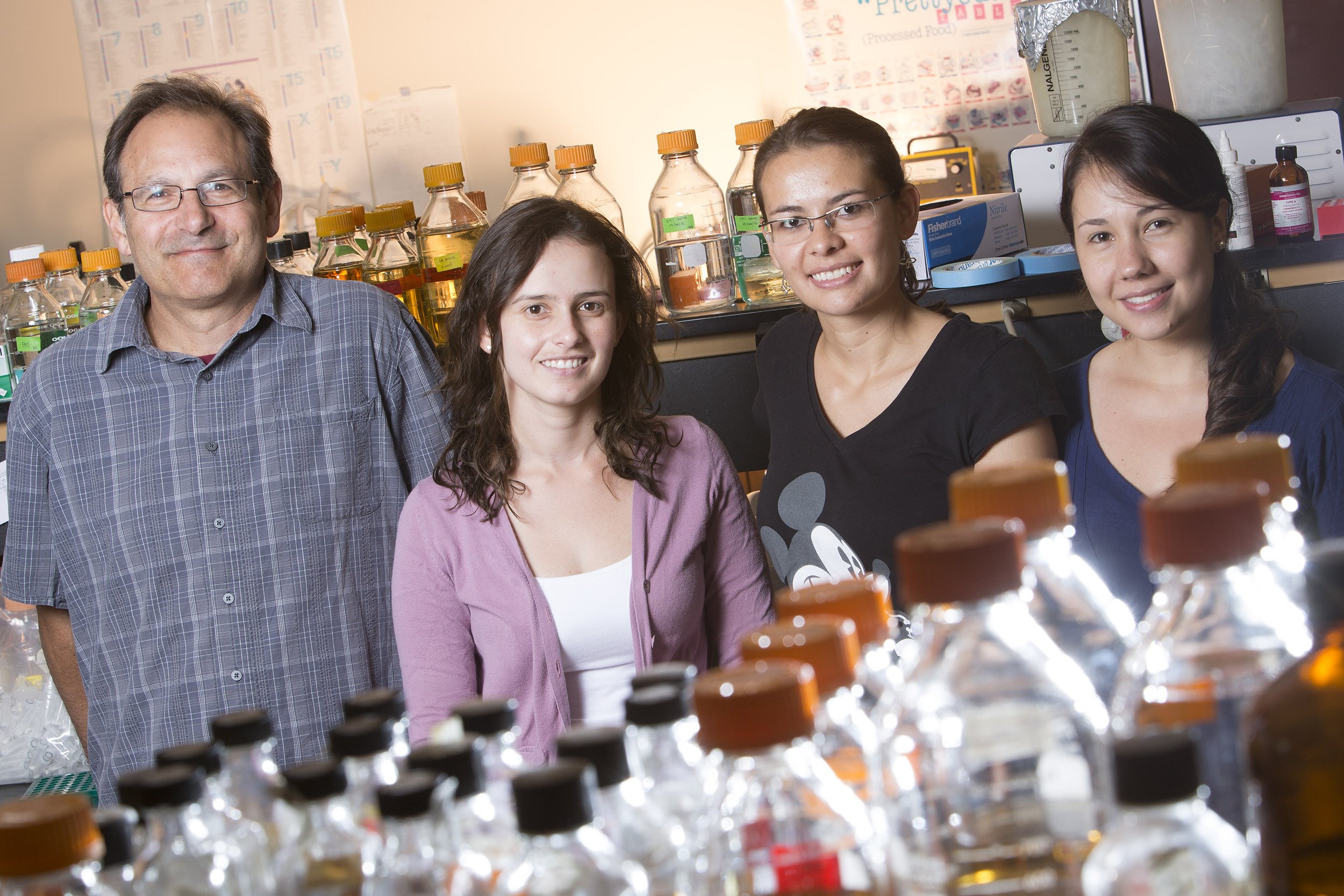Influencing Inflammation: Boosting Gut Health to Help Obese Adults
UNIVERSITY OF NEBRASKA-LINCOLN
PROBLEM
An unhealthy balance of gut bacteria can lead to inflammation and other intestinal disorders.
SOLUTION
Through a combination of probiotics and prebiotics, scientists are discovering ways to enable beneficial bacteria to thrive in the gut.
FUNDING
USDA NIFA AFRI
Nebraska Research Initiative
RESEARCHERS
Robert Hutkins, PhD, University Of Nebraska – Lincoln
Jens Walter, PhD, University of Alberta
Heather Rasmussen, PhD, Rush University Medical Center
Ali Keshavarzian, PhD, Rush University Medical Center
Janina Krumbeck, PhD, University of Nebraska
Inflammation is a major cause of health problems. When gut bacteria (microbiome) are out of balance, our protective intestinal barrier is disrupted, leading to an inflamed intestinal tract and the release of toxins into the body. This condition, called leaky gut syndrome, is more prominent in obese people, whose gut microbiomes may often be affected by high fat diets.
Drs. Hutkins and Walter and their collaborators set out to improve gut health by using a novel formulation of probiotics (healthy bacteria) and prebiotics (food for healthy bacteria). The team had previously fed a specific prebiotic called galactooligosaccharide (GOS) to human subjects. They then isolated bacteria enriched by the GOS, including one strain named Bifidobacterium IVS-1. The researchers knew that Bifidobacterium is important for maintaining a healthy microbiome and for protecting the intestinal barrier. They therefore wanted to introduce this organism into obese adults, who tend to have increased intestinal permeability, a condition that leads to inflammation.
They reasoned that if probiotics are introduced by themselves, the bacteria are at a competitive disadvantage because the gut is already populated by other organisms. To overcome this, the researchers formulated a synbiotic that combined the prebiotic food directly with the probiotic bacteria. By analogy, applying grass seed alone to a weedy lawn will not have much effect, but grass food plus seed could restore the lawn to a healthy state.
This novel approach has now been used in a human study to improve gut barrier function. Ultimately, this research may provide a basis for developing personalized nutrition strategies based on individuals’ microbiomes.
“Intestinal diseases like Crohn’s disease and ulcerative colitis are terrible diseases that negatively affect the quality of life for many Americans. We often hear from people desperate for answers. This motivates us to develop strategies to restore gut health.”

